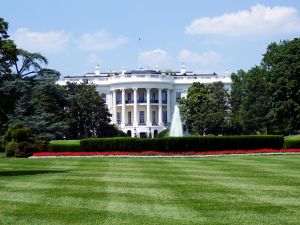The Federal Reserve is to blame for the recent historic drop in the stock market, according to a growing number of Wall Street experts, writes Business Insider. Since the Fed's last policy meeting last week, when the US central bank kept key interest rates in the range of 5.25-5.5%, and until yesterday, the S&P 500 index was down 7%, in while for the Nasdaq the decline was 10%.
Economics professor Jeremy Siegel said on CNBC on Monday that the Federal Reserve has kept interest rates high for too long, adding that the bank should cut the federal funds rate by 150 basis points in the next two months.
"I'm calling for an emergency cut of 75 basis points, and it's indicated that the Fed will cut another 75 basis points at the September meeting," Siegel said, adding, "That's the bare minimum."
In his opinion, the federal funds rate should be somewhere between 3.5 and 4% right now. The Wharton economics professor has long been critical of Federal Reserve Chairman Jerome Powell, arguing that he raised rates too late in the inflation boom of 2021 and 2022 and is now delaying interest rate cuts too long.
"Look at what happened three years ago. The markets know a lot better than the Fed, so (the Federal Reserve) has to respond," Siegel said. "If they will act as slowly to lower interest rates as they did to increase which, by the way, was the first policy error in the last 50 years, then we are not going through a good period for the economy".
Asked if the stock market decline was caused by the increasing odds of Kamala Harris winning the November US presidential election, Siegel was adamant that the problem was with the Fed and had nothing to do with the upcoming presidential election or geopolitical tensions, as suggested certain analysts.
"I don't think it's about the race to the White House, I don't think it's about Iran or Japan. The source is in Washington, in the Federal Reserve building," said the economist.
Mislav Matejka, a strategist at JPMorgan, wrote in a note on Monday that keeping interest rates at current levels in the first half of the year will hurt economic growth in the second half and that any future rate cuts by the Fed will likely not be enough.
"The Fed will begin to ease monetary policy, but more in a reactive manner and in response to weakening growth, meaning probably too slowly - which may not be enough to sustain a rebound," Matejka said.
According to some on Wall Street, Powell wants to convince the market that, even in the face of a potential recession, he remains committed to controlling inflation, just as former Fed Chairman Paul Volcker did in the 1980s.
"So far, Powell has had a much easier task than Volcker, but he has to deliver the same message. Well, this is happening right now. Giving the impression that his actions are reactive helps Powell and the FOMC (the Federal Open Market Committee - the arm of the Fed that determines the direction of monetary policy) reject the idea that possible interest rate cuts are politically motivated," wrote Nicholas Colas, co- founder of DataTrek, in a memo released earlier this week.
Regardless of the Fed's reasons for waiting until September to cut rates, the message the market is interpreting is clear. "There is a sense that the Fed waited too long to cut interest rates, and now it is being overtaken by events," said John Lynch, chief investment officer of Comerica Wealth Management, quoted by Business Insider.










































